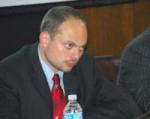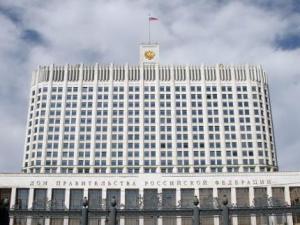
http://www.worldaffairsjournal...
Vladimir Kara Murza
Faced with tangible threats to his rule—manifested by a record level of public mistrust (according to a June poll by the Levada Center, disapproval of the president stands at 44 percent; up from 27 percent two years ago) and an organized protest movement that shows no signs of subsiding—Vladimir Putin is taking a familiar route: crackdown. Following the recent passage of a law that set fines for “violations” at public rallies at 300,000 rubles ($9,000; ten times Russia’s average monthly salary), the Kremlin has come up with a new initiative. On Friday, the State Duma overwhelmingly passed the first reading of a bill, proposed by Putin’s United Russia party, which would officially label Russian NGOs that receive funding from abroad as “foreign agents.”
Advertisement / Reklaam
Advertisement / Reklaam
According to the proposed legislation, NGOs that engage in “political activity” (defined as efforts to “influence state policy or public opinion”—in other words, almost anything) will be placed on a special registry at the Ministry of Justice. Inspections of these groups by the authorities will increase threefold. Violations of the new law will be punishable by fines of up to 1 million rubles ($32,200), or by up to four years in prison. The law will force NGOs to label all their publications with the tag “foreign agent.” (Boris Vishnevsky, an opposition lawmaker in St. Petersburg, compared this to the yellow Stars of David the Jews were forced to wear under the Nazis). Organizations will have 90 days to re-register under the new rules—or be shut down, initially for a period of six months.Groups that will be affected by this law include the anticorruption watchdog Transparency International, the election-monitoring association Golos (which played an instrumental role in documenting fraud in the recent parliamentary and presidential elections), the environmental group Greenpeace, as well as Russia’s leading human rights organizations, including the Moscow Helsinki Group, founded in 1976 by Yuri Orlov, Alexander Ginzburg, Yelena Bonner, and other Soviet dissidents. The Helsinki Group’s current chairman, Lyudmila Alekseeva, has already indicated that she will not, “under any circumstances,” comply with the new law and register her organization as a “foreign agent.” But the scope of the bill is much wider. One of the groups that could be targeted is “Gift of Life,” a charitable foundation that helps Russian children diagnosed with cancer—including with funds received from abroad. “Should we also have a law that forces a child who receives a transplant from a foreign donor to register as a foreign agent?,” asked Yekaterina Chistyakova, the fund’s program director. Mikhail Fedotov, the head of the Kremlin’s own human rights council, who opposes the legislation, suggested that even the Russian Orthodox Church, which receives donations from its parishioners abroad as well as in Russia, could now be labeled as a “foreign agent.”
Advertisement / Reklaam
Advertisement / Reklaam
“In typical fashion, United Russia is distorting the facts by suggesting that Russia is merely following the example set by the U.S. Foreign Agents Registration Act of 1938,” wrote Moscow newspaper columnist Georgy Bovt. “The U.S. law is not concerned at all with foreign NGOs operating in the United States. It would be hard to imagine U.S. congressmen proposing a bill to hound foreign NGOs operating in the United States that focus on protecting U.S. human rights, such as defending prisoners and women against abuse, or helping the homeless, troubled teens or drug addicts in the United States.”Slanderous accusations of “foreign” influence are, of course, nothing new for Russia’s human rights defenders (though this is the first attempt to make them official). Nothing could be more absurd than to accuse those who dedicate their lives to protecting the rights of Russian citizens of working for an outside interest. For many NGOs in today’s Russia, funding from abroad is not a matter of choice, but of necessity. After the showcase 2003 jailing of Mikhail Khodorkovsky, an active supporter of civil society projects, Russia-based entrepreneurs and philanthropists are afraid to touch anything remotely related to human rights.
The Kremlin’s latest initiative is unlikely to slow the tide of growing civil society activism in Russia. The proverbial “tightening of the screws” can only go so far. As political analyst Stanislav Belkovsky recently noted, “There is a problem with the screws. The thread is already stripped.”


























